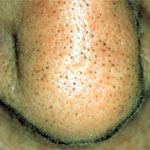Dr. Rassman,
Strictly for the sake of playing devil’s advocate with you here —
When you imply that products offered by non-“Big Pharma” companies are likely bogus or that you don’t buy into their efficacy because the only proof of their viability is based on their own self-promotion basically (i.e. your posts about Drs. Lee or Proctor or even laser product makers), isn’t that slightly hypocritical? I mean, your career and business is of course enhanced by people foregoing these alternate methods, so shouldn’t people just as much suspect an ulterior motive on your part?
I understand your usual answer that, without personally seeing the research, you cannot recommend one way or another on something. But frankly, were you physically present for the Big Pharma trials on minox or finasteride? I’m assuming not. Going a step further then, I assume you base your support for those “proven” products on the basis that you read their documentation — so how much documentation is necessary for you to believe a product is in fact what is says? Some of those non-Big Pharma products people have written in about have “some” documentation, though certainly not to the extent of the FDA mandated trials I’m sure. Where do you (or do you at all) draw the line?
Or is your ultimate argument that, “If [said product] were that good, a Big Pharma company would have picked it up?”
Thanks for your time, love your site (though I had to plead ignorance to my girlfriend when I recognized you on her favorite show “Jon and Kate Plus 8”, haha), your replies on these sort of issues just sometimes irk me — aspirin was discovered by a non-Big Pharma guy, after all.

 Oh boy. I never said I needed to be there during the research study of a product to know it was true or not. No, I wasn’t physically present at the trials of the finasteride or minoxidil, but those medications are proven to work and FDA approved. The problem with many of the products I’m asked about is that they come out of nowhere — old wives’ tales, myths, etc. Most of them offer testimonials or mentions of a study, but offer zero evidence that the study was even conducted or if it was even valid. People write to me at this site every single day asking for solutions to their hair loss. Should I tell them to just go ahead and potentially waste their time and money on an unproven product while they lose more hair that they can’t get back… or should I let them know about medications that are proven to be effective?
Oh boy. I never said I needed to be there during the research study of a product to know it was true or not. No, I wasn’t physically present at the trials of the finasteride or minoxidil, but those medications are proven to work and FDA approved. The problem with many of the products I’m asked about is that they come out of nowhere — old wives’ tales, myths, etc. Most of them offer testimonials or mentions of a study, but offer zero evidence that the study was even conducted or if it was even valid. People write to me at this site every single day asking for solutions to their hair loss. Should I tell them to just go ahead and potentially waste their time and money on an unproven product while they lose more hair that they can’t get back… or should I let them know about medications that are proven to be effective?
I have no bias to solutions produced by the large pharmaceutical companies. I look at everything that is offered in this field by the evidence that is produced for me to review. I have, for example, evaluated the hair laser and found that the actual research was inadequate to recommend that patients use the laser for hair growth. I even took it one step further and acquired a large laser system and tried it for 12 months at my cost for as many patients as I could find willing to be studied (for free). The results were clear that the Low Laser Light Therapy (LLLT) had no value to those patients that were studied by me. If I would have found otherwise, I could recommend this treatment and charge for its use (making money), but I can not do that if I am not convinced that it will work. I learned from the days I was a boy scout that “honesty is the best policy”, and I guess I am an old-fashioned clinical scientist.

 I assume you’re not shaving them in your sleep…
I assume you’re not shaving them in your sleep…
 That is not entirely true. There are of course costs involved, but most
That is not entirely true. There are of course costs involved, but most  Read the full article —
Read the full article —  I know nothing more about the Histogen HSC (Hair Stimulating Complex) than you do by watching those videos. I do give credit to Dr. Naughton for appearing in the videos, but I always worry about market hype and speculation in such announcements. I doubt we’ll see it move through the pipeline as quickly as hoped, but we can all keep our fingers crossed that I’m wrong.
I know nothing more about the Histogen HSC (Hair Stimulating Complex) than you do by watching those videos. I do give credit to Dr. Naughton for appearing in the videos, but I always worry about market hype and speculation in such announcements. I doubt we’ll see it move through the pipeline as quickly as hoped, but we can all keep our fingers crossed that I’m wrong. I just came across the diagnosis of trichostasis spinulosa, which I have seen in my practice on occasion and have failed to come up with a diagnosis.
I just came across the diagnosis of trichostasis spinulosa, which I have seen in my practice on occasion and have failed to come up with a diagnosis.